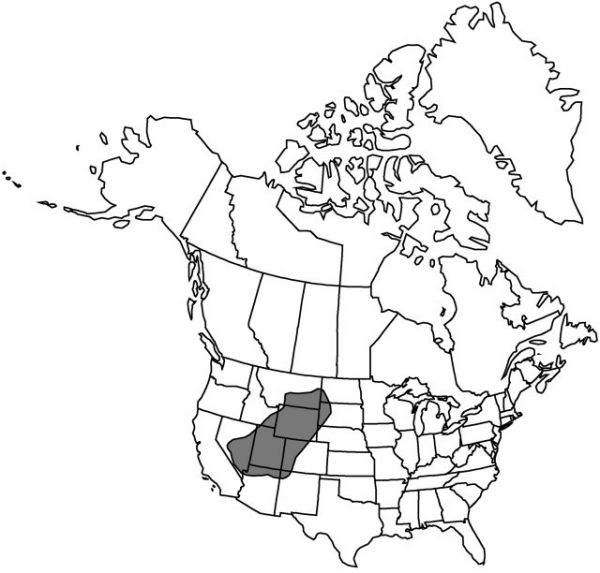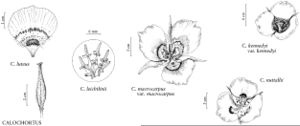Calochortus nuttallii
in H. Stansbury, Exped. Great Salt Lake, 397. 1852.
Plants usually bulbose; bulb coat, when present, membranous. Stems usually not branching or twisted, straight, 1.5–4.5 dm. Leaves: blade linear, becoming involute; basal withering. Inflorescences subumbellate, 1–4-flowered; bracts congested, unequal. Flowers erect; perianth open, campanulate; sepals marked similar to petals, usually shorter, lanceolate, glabrous, apex acuminate; petals white, tinged with lilac or infrequently magenta, yellow at base, with reddish brown or purple band or blotch distal to gland, broadly obovate, cuneate, sparsely invested near gland with slender hairs, apex usually short-acuminate; glands round, depressed, surrounded by conspicuously fringed membrane, densely covered with short, unbranched or distally branching hairs; filaments ca. equaling anthers; anthers yellowish or pinkish, oblong, apex obtuse. Capsules erect, linear-lanceoloid, 3-angled, apex acuminate. Seeds flat. 2n = 16.
Phenology: Flowering late spring–late summer.
Habitat: Dry soils
Elevation: 700–3300 m
Distribution

Ariz., Colo., Idaho, Mont., Nebr., Nev., N.Mex., N.Dak., S.Dak., Utah, Wyo.
Discussion
Selected References
None.
